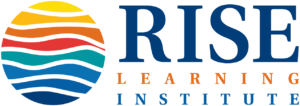 Resumes have distinct sections that provide the potential employer easy access to the types of information that they need. The names of the sections can be changed in whatever way makes the most sense for your experience – this is a good reason not to use a template! If a section only has one item in it, find a way to merge that information into another section. Here are some basic sections you may want to consider including:
Resumes have distinct sections that provide the potential employer easy access to the types of information that they need. The names of the sections can be changed in whatever way makes the most sense for your experience – this is a good reason not to use a template! If a section only has one item in it, find a way to merge that information into another section. Here are some basic sections you may want to consider including:
| Subject | Description |
|---|---|
| Contact Information (required) | Required: full name, phone number (with area code), and email address. Street address and city are NOT recommended. When posting your resume on the Bellevue College job/internship site (CONNECT!), do not include your address. |
| Objective (optional) | A good Objective focuses on what you can do for the company – not what they can do for you. |
| Tag Line (Optional) | Your professional title or title of the job you’re targeting. |
| Skill Set (Optional) | A brief, targeted list of your core competencies (one or two words, not sentences). |
| Summary of Qualifications (Recommended) | 3-6 bulleted phrases that sum up your key experience and knowledge, as it relates to the targeted position. If they read nothing else on the resume, this should give them a good idea of why you are qualified. This can be used with or in place of an Objective, Tag Line, or Skills Set. |
| Work Experience (Recommended) | A brief, targeted list of your core competencies (one or two words, not sentences). |
| Skill Set (Optional) | Most recent experiences should be listed first. Include title of position, name of organization, location (city and state only), a date range (month/year or just year), and a brief description of the position. Usually the titles of positions should stand out more than the names of the companies or dates. Provide elaboration about what you did well, what you did that went above-and-beyond your job description, what you did that indicated responsibility, specific accomplishments, promotions, quantifiable results, etc. May include volunteer work, internships, clinical experience, etc. |
| Education (Recommended) | List degrees, licenses, or relevant certificates in reverse chronological order. Include the specific degree name, school name, location of school (city and state only), and optionally the date you completed the degree (if you haven’t finished yet, write “In Progress” or “Projected 2010” or “Expected Graduation 2010”). Usually, the names of degrees should stand out more than the names of the schools. Provide additional information about relevant coursework (course titles, not numbers), special projects, accomplishments, etc. in a bulleted list. Include high school only if you don’t have much on your resume or if you were very active in high school, if you received special awards, etc. Do not include if you graduated more than 2 years ago. |
| Awards (Optional) | List merits, awards, commendations, honors, fellowships, scholarships, elected positions, etc. that pertain to the position for which you are applying. Include a brief explanation, such as “for academic achievement” or “community service award” if it’s not obvious from the name of the award. |
| Special Skills (Optional) | Provide information about specific skills that are relevant, such as languages (you can note fluency level and reading/writing ability), computer experience, use of special equipment, etc. |
| Computer Skills (Optional) | You may want a separate section for computer skills, especially if you are in a technical industry. List computer applications, programming languages, networking capabilities, troubleshooting skills, hardware experience, or other special talents. |
| References (Not Recommended) | If the application instructions ask you to provide references, list them on a separate piece of paper. Do not say “Reference Available upon Request” in your resume – they already know that! |
| Portfolio (Optional) | If you have a portfolio (recommended for all disciplines), you can write “Portfolio Available upon Request,” or even better – provide a web link! |
| Other (Optional) | You can create any section that makes sense, such as Professional Training & Development, Related Activities, Extracurricular Activities, Community Activities, Certifications & Licenses, Professional Memberships, Publications, Additional Experiences, Additional Skills… Find a way to include anything you did that showed initiative or passion: Eagle Scouts, Math Olympics, etc. |
Last Updated November 22, 2017

